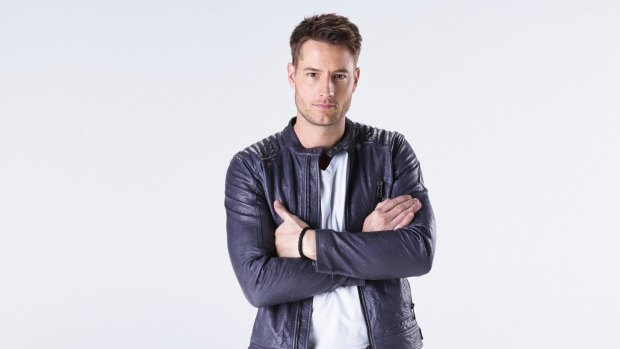
The Pressure Behind the Perfect Smile
Justin Hartley may seem like the picture of success—handsome, articulate, and consistently employed in high-profile television. But behind the scenes, he has battled the same emotional and psychological weight that often comes with being in the spotlight. What makes Hartley unique is his willingness to speak about these struggles, not for attention, but to normalize mental health conversations in a still-image-obsessed industry.
From his early days on Passions to his emotionally layered portrayal of Kevin Pearson in This Is Us, Hartley has had to channel deep personal emotion into his performances. The process is emotionally taxing—especially when you’re expected to bare your soul to millions, then return home and be a father, partner, and professional all over again the next day.
“Acting opens you up,” Hartley said in a 2023 interview. “It’s therapeutic in a way, but if you don’t take care of yourself off-screen, it can also be draining—sometimes even damaging.”
A Culture of Performance, On and Off Screen
In Hollywood, it’s not just the characters who are expected to perform. Celebrities, too, are often trapped in cycles of public performance—at press junkets, on social media, and even in everyday interactions with fans. Hartley, who values authenticity, has often described the emotional exhaustion that can follow months of being “on” for others.
He has set clear boundaries in his professional life to protect his peace. Unlike many of his peers, Hartley limits his social media use, avoids participating in internet drama, and selectively chooses interviews where he feels the discussion will be meaningful rather than superficial.
“I don’t need to be everywhere,” he says. “I just want to be where I can be real.”

Therapy, Mindfulness, and the Choice to Heal
Hartley began attending therapy regularly during his 30s, after experiencing a period of emotional burnout. With a young daughter and an increasingly demanding career, he realized that self-awareness wasn’t optional—it was survival. He has spoken candidly about therapy as a tool for processing everything from childhood insecurities to career-related anxieties.
He also practices mindfulness, credits journaling with helping him stay emotionally grounded, and prioritizes physical health not just for aesthetic reasons but because it keeps his mental equilibrium in check.
“When I’m working out, when I’m cooking dinner, or just walking the dog—I’m reminding myself that I exist outside of the industry,” he explained.
Supporting Others, Quietly
In addition to his personal healing, Hartley uses his platform to support others struggling with mental health. He has donated to mental health organizations, spoken at events focusing on emotional well-being in the entertainment industry, and frequently mentors young actors entering the business.
Rather than posting performative platitudes, he engages in sustained, quiet advocacy—conversations on set, encouragement behind the scenes, and speaking truth to industry expectations when needed.
Hartley believes strength comes not from pretending to be invulnerable, but from acknowledging what hurts—and choosing to heal anyway.
